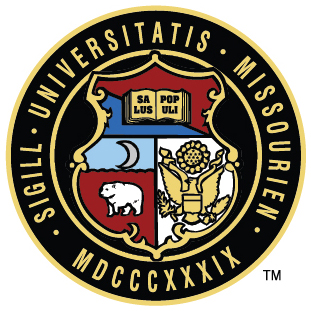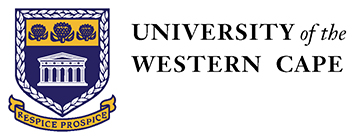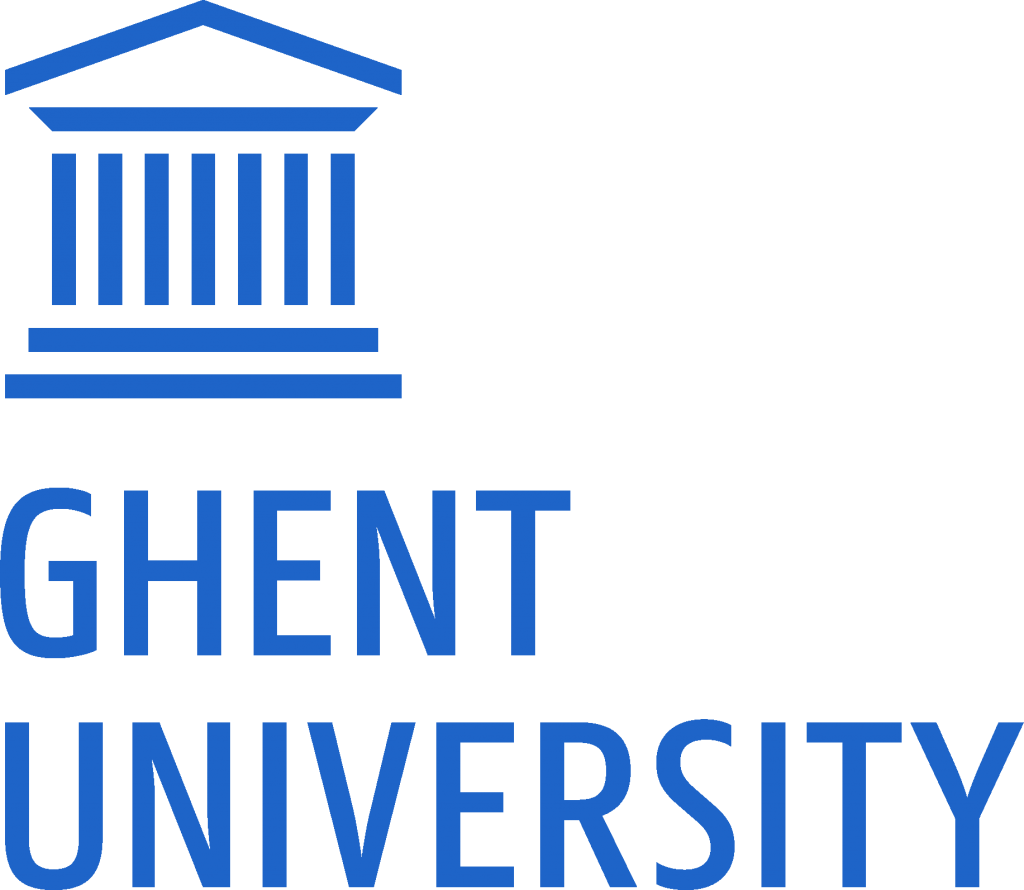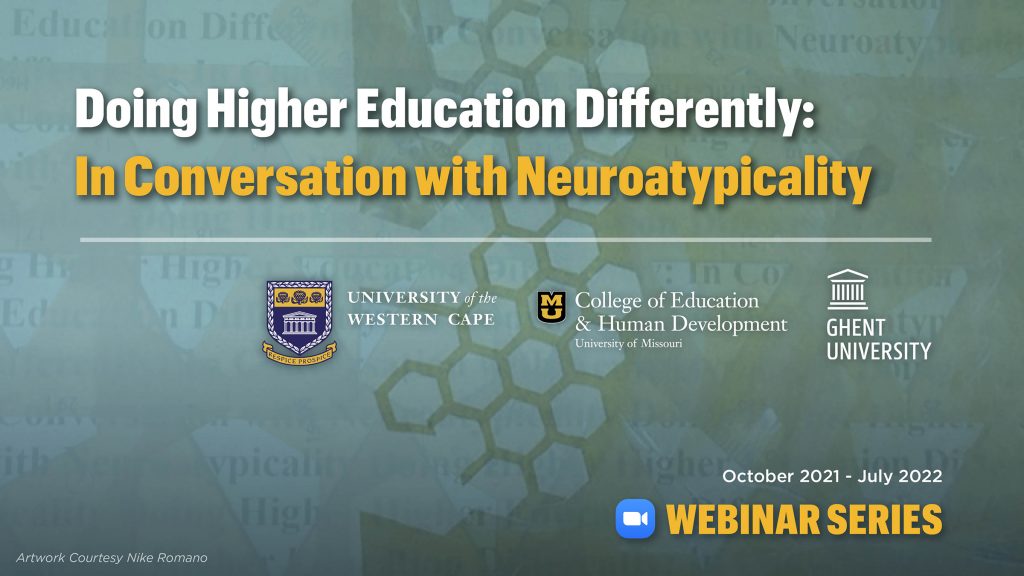
Doing Academia Differently: In Conversation with Neuroatypicality
Hosted by
- Dr. Vivienne Bozalek, University of the Western Cape, South Africa
- Dr. Candace Kuby, University of Missouri, USA
- Dr. Geert Van Hove, Ghent University, Belgium
This free webinar series, with 10 total sessions, meets monthly on the topic of doing academia differently through conversations with neuroatypicality. Each session involves one or two international guests who have had some experience with neuroatypicality in the context of higher education.
Content
Each panelist will discuss the following:
- What does neuroatypicality mean for higher education?
- How might higher education be differently configured from the viewpoint of neuroatypicality?
- What does neuroatypicality have to offer higher education politically, ethically, ontologically and epistemologically (politico-ethico-onto-epistemologically)?
- How might neuroatypicality as an alternative politico-ethico-onto-epistemology intersect with decolonial and postcolonial debates in higher education?
Invited guest speakers will discuss their experiences of neuroatypicality in higher education and think about how to do academia differently through these experiences. The speakers locate themselves in a variety of philosophical and theoretical approaches which underpin their practices and experiences with neuroatypicality in higher education. The invited panelists also suggest several readings for webinar attendees to read prior to the webinar, although this is not a prerequisite for participating in the webinar series (see list of readings).
Webinars
- Webinars are on the third Thursday of the month (unless otherwise noted)
- 1 ½ hour duration with hosts interviewing the panelist(s) then time for questions from attendees
- Zoom links will be added throughout the year
We invite faculty members, activists involved with neuroatypicality and mad studies and students to join this online learning space. Our goal is to record and make publicly available the webinars with permission from panelists. Please see detailed information below.
Previously recorded webinars
You can access past recordings on the Doing Academia Differently: In conversation with Neuroatypicality youtube channel.
Partnership
This webinar series is made possible by a Tri-Continental (3C) Partnership which is a trilateral agreement between the University of Missouri, the University of the Western Cape, and Ghent University. The Tri-Continental (3C) Partnership set up a fund to promote partnership between these three institutions during a time of travel restrictions due to the global pandemic. The funds were provided to support virtual research and teaching collaborations between faculty members at the three institutions. We are grateful for our universities’ long-time collaboration and support of this webinar series.
Contact
If you have questions about the webinar series, accessing the Zoom webinar link, and/or need assistance in accessing the suggested readings, please email Nike Romano at romanon@cput.ac.za.
Invited Speakers and Suggested Readings
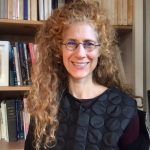 October 14, 2021 • Erin Manning
October 14, 2021 • Erin Manning
8:30 am Central Standard Time in the U.S., 3:30 pm Central European Standard Time, 4:30 pm Cape Town, SA time zones
Research Chair, Speculative Pragmatism, Art, and Pedagogy; Director, Interdisciplinary PhD in the Humanities & Faculty of Fine Arts; and Director, SenseLab at Concordia University
Erin Manning studies in the interstices of philosophy, aesthetics and politics, concerned, always, about alter-pedagogical and alter-economic practices. 3e is the direction her current research takes – an exploration of the transversality of the three ecologies, the social, the environmental and the conceptual. An iteration of 3e is a land-based project north of Montreal where living and learning is explored. Legacies of SenseLab infuse the project, particularly the question of how collectivity is crafted in a more-than human encounter with worlds in the making.
Zoom webinar link: https://umsystem.zoom.us/j/91070988788 Passcode: 068997
Suggested reading:
- Manning, E. 2020. For a Pragmatics of the Useless. Durham & London: Duke University Press.
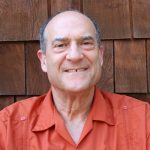 November 18, 2021 • Peter Smagorinsky
November 18, 2021 • Peter Smagorinsky
8:30 am Central Standard Time in the U.S., 3:30 pm Central European Standard Time, 4:30 pm Cape Town, SA time zones
Distinguished Research Professor at The University of Georgia, emeritus; and Distinguished Visiting Scholar at the Universidad de Guadalajara, Jalisco, Mexico.
Peter’s interest in neurodiversity began with his recognition that he and family members are on the autism spectrum, along with other neuro-atypical conditions. His interest in neurodiversity has produced a number of articles and chapters, and two recent edited collections:Creativity and Community among Autism-Spectrum Youth: Creating Positive Social Updrafts through Play and Performance from Palgrave Macmillan; and, coedited with Joe Tobin and Kyunghwa Lee, Dismantling the Disabling Environments of Education: Creating New Cultures and Contexts for Accommodating Difference from Peter Lang.
Zoom webinar link: https://umsystem.zoom.us/j/95241268920
Suggested reading:
- Smagorinsky, P. (2016, May 22). University of Georgia professor explains his ‘Asperger’s Advantage’ and disabling assumption of disorder. Atlanta Journal-Constitution.
- Smagorinsky, P. (2011). Confessions of a mad professor: An autoethnographic consideration of neuroatypicality, extranormativity, and education. Teachers College Record, 113, 1701-1732.
- Smagorinsky, P. (2012). Vygotsky, “defectology,” and the inclusion of people of difference in the broader cultural stream. Journal of Language and Literacy Education [Online], 8(1), 1-25.
December 16 • Elisabeth De Schauwer & Leni van Goidsenhoven
8:30 am Central Standard Time in the U.S., 3:30 pm Central European Standard Time, 4:30 pm Cape Town, SA time zones
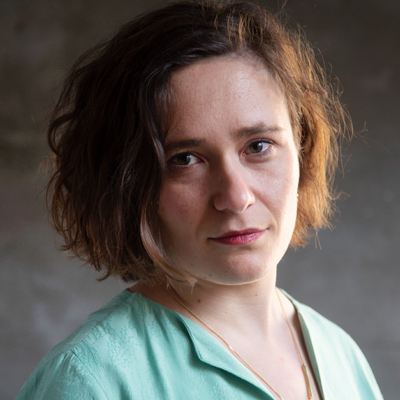
Leni Van Goidsenhoven obtained her PhD in Cultural and Literary Studies. As a postdoctoral researcher she works at the Philosophy department of Antwerp University, where she is involved in the interdisciplinary ERC project NeuroEpigenEthics. In her thinking and writing she always makes use of poststructuralist and new materialist frameworks, crip theory and literary theory. She has a special interest in reconceptualizing voice, the importance of imagination in research, accessibility in the art world, and working with the ‘not-yet known’.
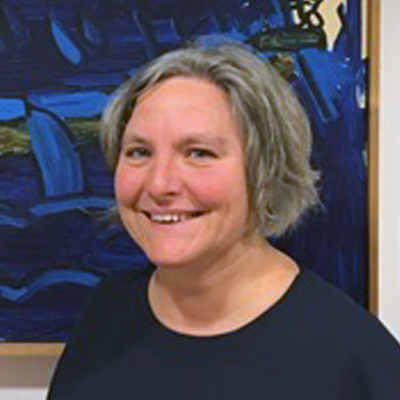
Elisabeth De Schauwer (PhD) is one of the driving forces of the Disability Studies researcher’s collective at Ghent University and works as a guest professor in the faculty of Educational Sciences. Her research now focuses on intra-actions with difference in (pedagogical) relations. Her teaching circles always around working with diversity and struggling with inclusion. She is thinking and writing with poststructuralist and new materialist frameworks.
For Leni and Elisabeth, activism, research and teaching go hand in hand.
Zoom Webinar Link: https://umsystem.zoom.us/j/92919970845 Passcode: 464611
Suggested reading:
- De Schauwer, E., Van de Putte, I., Van Goidsenhoven, L., Blockmans, I., Vandecasteele, M., & Davies, B. (2017). Animating disability differently: Mobilizing a heterotopian imagination. Qualitative Inquiry, 23(4), 276-286.
- Van Goidsenhoven, L., & De Schauwer, E. (2020). Listening beyond words: swinging together. Scandinavian Journal of Disability Research, 22(1), 330-339.
- De Schauwer, E., Daelman, S., Vandenbussche, H., Sergeant, S., Van de Putte, I., & Davies, B. (2021). Desiring and critiquing humanity/ability/personhood: disrupting the ability/disability binary. Disability & Society, 36(2), 286-305.

January 20, 2022 • Geoffrey Reaume
8:30 am Central Standard Time in the U.S., 3:30 pm Central European Standard Time, 4:30 pm Cape Town, SA time zones
Associate Professor in Critical Disability Studies at York University in Toronto, Canada
Geoffrey Reaume earned his PhD in History (1997) at the University of Toronto and his work was published as a book, “Remembrance of Patients Past: Patient Life at the Toronto Hospital for the Insane, 1870-1940” (OUP, 2000). His study was made into a play performed by psychiatric survivors in Toronto from 1998-2000. Reaume is a co-editor with Brenda LeFrancois and Robert Menzies of “Mad Matters: A Critical Reader in Canadian Mad Studies” (CSPI, 2013). He created the first university credit course in Mad People’s History which he has been teaching since 2000.
Zoom webinar link: https://umsystem.zoom.us/j/95900748850
Suggested reading:
- Human Resource Development 31:1 (Winter 2019): 22-39 “Psychiatric Patient Built Wall Tours at the Centre for Addiction and Mental Health (CAMH), Toronto, 2000 – 2010”, Left History, 15:1 (Fall/Winter 2010-2011): 129-148
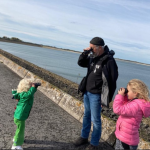
February 17, 2022 • Geert Van Hove
8:30 am Central Standard Time in the U.S., 3:30 pm Central European Standard Time, 4:30 pm Cape Town, SA time zones
Professor of Disability Studies, Ghent University
I love basketball and jazz and enjoy being with my 6 children/stepchildren and our 7 grandchildren. At Ghent University I am a member research group of great colleagues all trying to understand how to live with diversity in families, schools, working places, Higher Education. Together with Bachelor, Master and PhD students we also play a lot within the great prairie called ‘research’.
Zoom webinar link: https://umsystem.zoom.us/j/98143224103
Suggested reading:
- Jay Timothy Dolmage (2017), Academic Ableism, University of Michigan Press

March 17, 2022 • Tanya Titchkosky
9:30am Central Daylight Savings Time, 3:30pm European Standard Time, and 4:30pm Cape Town, SA time zones
Professor in Social Justice Education at OISE at the University of Toronto
Dr. Tanya Titchkosky is Professor in Social Justice Education at OISE at the University of Toronto, teaching and writing in the area of disability studies for more than 20 years. Some of her books include Disability, Self, and Society (2003), as well as, Reading and Writing Disability Differently (2007) and The Question of Access: Disability, Space, Meaning (2011). Tanya works from the position that whatever else disability is, it is tied up with the human imagination steeped in mostly unexamined conceptions of “normalcy.” This disability studies research and teaching orientation, relies on other critical approaches to inquiry that question the grounds of Western ways of knowing, such as phenomenology influenced by Black, Queer, and Indigenous Studies. By grappling with the act of interpretation, Tanya hopes to reveal the restricted imaginaries that surround our lives in and with disability. With co-editors, she has a new reader coming out in 2022 titled DisAppearing: Encounters in Disability Studies.
Zoom webinar link: https://umsystem.zoom.us/j/99919816563
Suggested reading:
- Chapter 2, “Who?’ Disability Identity and the Question of Belonging – from Titchkosky, T. (2015). The Question of Access: Disability, pp. 30-48.
- Titchkosky, T. (2015). Life with Dead Metaphors: Impairment Rhetoric in Social Justice Praxis. Journal of Literary & Cultural Disability Studies 9(1), 1-18.
April 21, 2022 • Karen Lazar and Denise Newfield
9:30am Central Daylight Savings Time, 4:30pm European Daylight Savings, and 4:30pm Cape Town, SA time zones.
The presentation today is by poet, scholar and teacher, Karen Lazar, facilitated by her Colleague, Denise Newfield. Karen has recently published a highly acclaimed poetry collection, Echoes, which provides a vivid, critical portrayal of her ‘neuro-atypicality’. Poems from this collection will form the core of the presentation, leading to a discussion of the underlying principles and questions of this series.
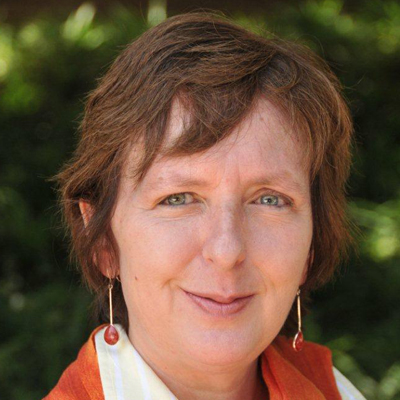
Dr. Karen Lazar is a writing coach, disability activist, and lecturer in English and Professional Literacies at several actual and virtual tertiary campuses. She was educated at Wits University in Johannesburg, BA to PhD in English, and lives in Johannesburg. Her PhD and some of her academic writing are feminist studies of the work of Nobel Laureate Nadine Gordimer. Since her life-altering stroke in 2001, Karen has written in the field of medical humanities, through which she endeavors to capture, as a privileged stroke survivor who has not lost language, the voices and perceptions of disabled people who may otherwise not be seen or heard. Karen is the author of two collections of hybrid prose-poems that offer the world from a seated and off-center view.
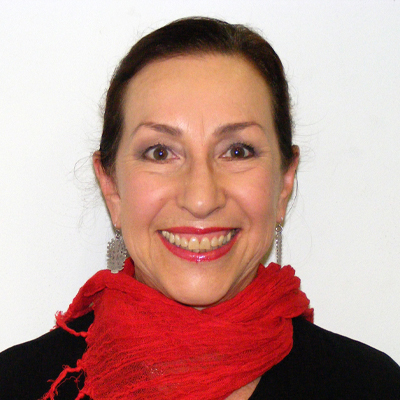
Denise Newfield is a retired professor of English and Education at the University of the Witwatersrand, South Africa, where she worked for many years in preservice and graduate teacher education. She holds a PhD from the University of London entitled ‘Transmodal semiosis in classrooms: Case Studies from South Africa’. She remains research-active in a range of cutting-edge educational projects and supervises graduate theses that concern educational change. Her research interests and publications pertain to the fields of literature and literacy education, multimodality, multiliteracies, posthumanism, postphilosophies, curricular, pedagogic and research transformation, decolonization and neuro-atypicality. She was principal investigator of a poetry research project in the field of indigenous knowledge systems. She is interested in how insights from neuro-atypicality can assist us in doing academia differently. Recent publications include: ‘A Thebuwa hauntology, then and now: Reconceptualising literacy practices’ (with V. Bozalek); ‘Thebuwa and a pedagogy of social justice: diffracting multimodality through posthumanism’, and ‘Touching matters: Affective entanglements in coronatime’ (with Bozalek at al).
Zoom webinar link: https://umsystem.zoom.us/j/96688613211?pwd=Z1I5WWF3OTVHRm9ISVEybHpkcDVFZz09
Meeting ID: 966 8861 3211
Passcode: 462729
Suggested reading:
- Hemispheres: inside a stroke (Cape Town: Modjadji Press, 2011) and Echoes (Johannesburg: Quartz Press, 2021). The books are available on Amazon and booksdirect.co.za
May 19, 2022 • Bren LeFrançois
9:30am Central Daylight Savings Time, 4:30pm European Daylight Savings, and 4:30pm Cape Town, SA time zones.
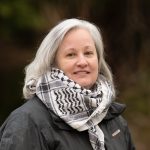
University Research Professor at Memorial University of Newfoundland and Labrador
Professor LeFrançois’ scholarship focuses on psychiatrization, sanism and anti-sanist praxis, from mad studies, anti/postcolonial and anarchist perspectives. They have published widely on these and related topics, including co-editing the volume Mad Matters with Robert Menzies and Geoffrey Reaume, which is currently in its second edition with Idil Abdillahi. Professor LeFrançois obtained an interdisciplinary PhD in England at the University of Kent at Canterbury, and since that time has held faculty positions in Canada at both Laurentian University and Memorial University. Their most recent research project focuses on accommodation and equity issues in relation to disabled students engaging in field practica within health professions. In their spare time, they enjoy back country camping, and spending time with their two children and four cats.
Zoom webinar link: umsystem.zoom.us/j/97165233220
Meeting ID: 971 6523 3220
Passcode: 898121
Suggested reading:
- Mills, C. & LeFrançois, B.A. (2018). Child as Metaphor: Colonialism, Psy-Governance, and Epistemicide, World Futures, 74, 503-524.
- LeFrançois, B.A. & Voronka, J. (2022). Mad Epistemologies and Maddening the Ethics of Knowledge Production. In T. Macias (Ed.). Un/Ethical Un/Knowing: Ethical Reflections on Methodology and Politics in Social Science Research. Toronto: Canadian Scholars Press Inc.
- Armstrong, V. & LeFrançois, B.A. (2021). Interrogating mad studies in the academy: Bridging the community/academy divide. The Routledge International Handbook of Mad Studies (pp315-326). London: Routledge.
- LeFrançois, B.A. (2020). Psychiatrising children. In V. Cooper & N. Holford (Eds.). Exploring Childhood and Youth (Chapter 13, pp177-190). London: Routledge.
June 16, 2022 • Alise de Bie
9:30am Central Daylight Savings Time, 4:30pm European Daylight Savings, and 4:30pm Cape Town, SA time zones.

Postdoctoral Research Fellow at McMaster University
Alise is currently a Postdoctoral Research Fellow in McMaster University’s teaching institute, with teaching and research interests and contributions in Mad Studies, Critical Disability Studies, social work, ethics, and health humanities. Kate is Manager of the university’s Accessibility Program with teaching and research interests in applied accessibility practice and knowledge translation of accessibility and disability legislation.
Alise will be joined by Kate Brown, one of the colleagues, together they have participated in, led, and collaborated with disabled students, stagf and faculty on several initiatives to enhance accessibility through relational strategies.
Zoom webinar link: https://umsystem.zoom.us/j/95975561729?pwd=dFNSVk5nUmI0cFFwMzJzVWR0VVI3UT09
Meeting ID: 959 7556 1729
Passcode: 405822
Illustrative Readings / Projects:
- de Bie, A. (2019). Finding ways (and words) to move: Mad student politics and practices of loneliness. Disability & Society, 34(7-8), 1154-1179. Open access (p. 22-53): http://hdl.handle.net/11375/24439
- de Bie, A. (Ed.). (2014). This Insane Life magazine: Mad students edition. Mad Pride Hamilton. http://hdl.handle.net/11375/25051
- de Bie, A., Tanisha, Woolf, E., Danny, Vikita, Evonne, & Brown, K. (Eds.) (2021). Dis/orientation: Navigating accessibility in teaching and learning – A zine by disabled students and alumni at McMaster University.https://ecampusontario.pressbooks.pub/macdisabilityzine/
- Brown, K., de Bie, A., Aggarwal, A., Joslin, R., Williams-Habibi, S., & Sivanesanathan, V. (2020). Students with disabilities as partners: A case study on user testing an accessibility website. International Journal for Students as Partners, 4(2), 97-109.https://doi.org/10.15173/ijsap.v4i2.4051
- de Bie, A., & Brown, K. (2017). Forward with FLEXibility: A teaching and learning resource on accessibility and inclusion. McMaster University. https://flexforward.pressbooks.com
July 18, 2022 • Tito Mukhopadhyay
9:30am Central Daylight Savings Time, 4:30pm European Daylight Savings, and 4:30pm Cape Town, SA time zones.
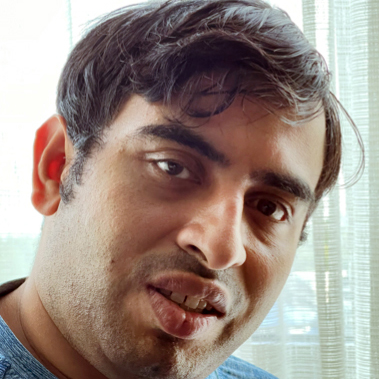
I began composing poetry and prose from an early age My first book – “Beyond the Silence was published when I was 11 years old. Since then I had more opportunities to be published – The Mind Tree, How Can I Talk if My lips Don’t Move. Plankton Dreams, Teaching Myself to See’ are some. I continue to write poetry and prose as part of my own discipline. Plankton Dreams and Teaching Myself to See would be good to introduce the aspects of autism that people may call as hurdles. Plankton Dreams reflect a special school set up while Teaching Myself to See shows the visual densities or adaptations I had to go through to make sense of the visual world.
Zoom webinar link: https://umsystem.zoom.us/j/97776343647?pwd=UWxTU1RUQjB0ZXJCbHduWjNTL0xCUT09
Meeting ID: 977 7634 3647
Passcode: 492650
Readings / Projects:
- Mukhopadhyay, T. 2016. Plankton Dreams: What I Learned in Special-Ed. Open Humanities Press. Available at http://www.openhumanitiespress.org/books/titles/plankton-dreams/
- Mukhopadhyay, T. 2021. Teaching myself to see. Punctum Books. Available at https://punctumbooks.com/titles/teaching-myself-to-see/
